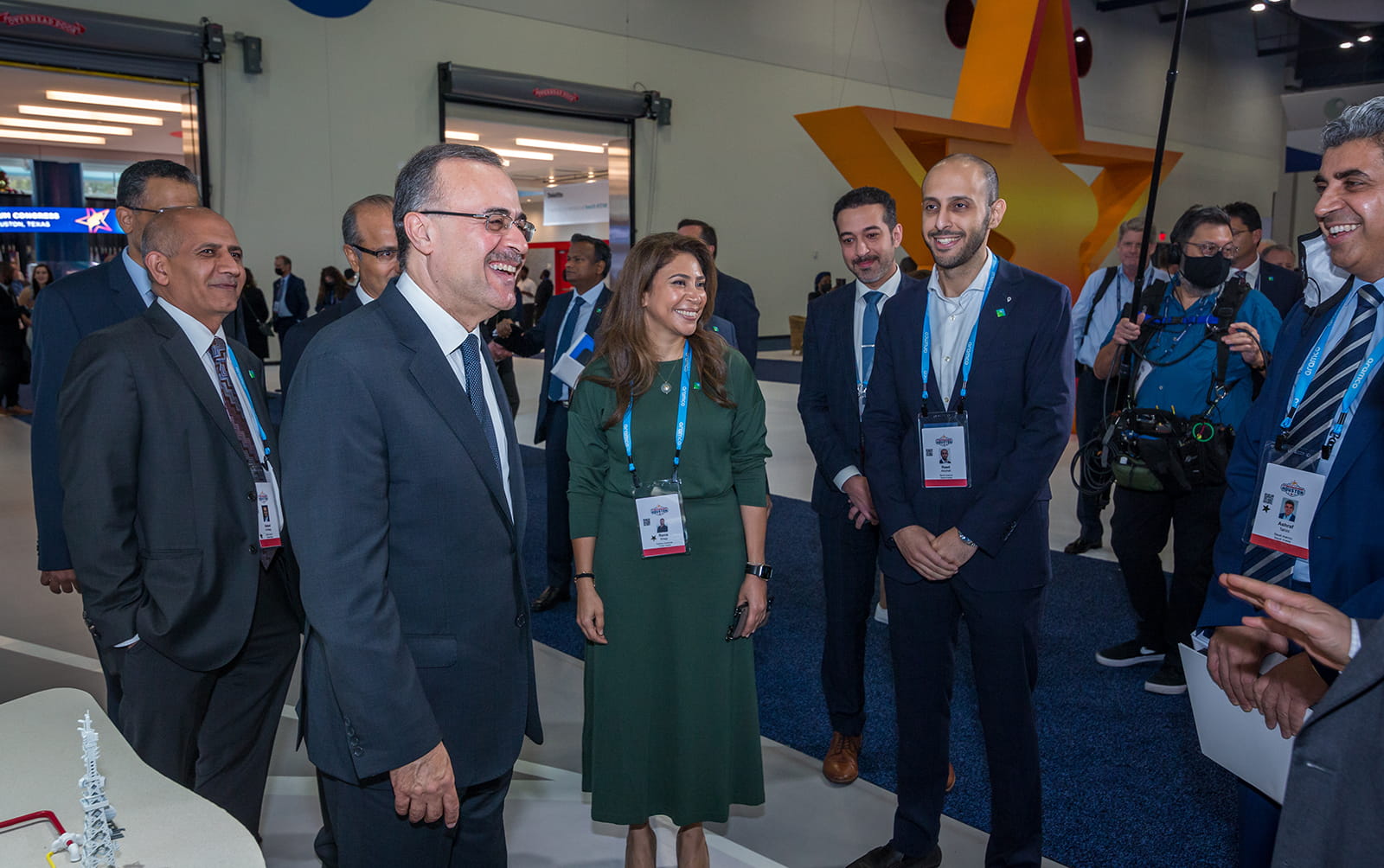CEO calls for smarter energy transition plan at 23rd World Petroleum Congress

Amin Nasser takes time to meet with members of Aramco Americas at the Aramco booth during the World Petroleum Congress held this week.
The world needs to strengthen its plan for the energy transition to ensure it proceeds smoothly and acknowledge that petroleum will be a crucial part of the global economy's energy mix for decades to come, Saudi Aramco president and CEO Amin Nasser said at the 23rd World Petroleum Congress in Houston on Monday.
Click here to read Amin Nasser's speech at the 23rd World Petroleum Congress
The current approach to the energy transition mistakenly assumes that renewables, such as wind and solar, will be able to scale up quickly, and that commercially viable alternatives to conventional fuels will arrive soon. It also fails to pay enough attention to energy security, economic development, and affordability issues, especially in the developing world, he said.
“The urgent new quest for our industry is to chart a course that will continue to realistically meet the world's rising energy needs in a reliable, affordable, and sustainable manner,” Nasser said.
Oil and gas needed for many years
There have been early signs this year of what a rocky transition might look like. Supplies have started to lag demand after producers across the industry cut upstream CAPEX by more than 50% from 2014 to 2020. Now producers also face mounting pressure to stop new oil and gas investments, he said.
A more realistic energy transition model would explicitly recognize that oil and gas will be needed for many years into the future and that industry leaders can accelerate emissions reductions so climate goals can be met, Nass- er added.
“Publicly admitting that oil and gas will play an essential and significant role during the transition and beyond will be hard for some. But admitting this reality will be far easier than dealing with energy insecurity, rampant inflation, and social unrest if prices become intolerably high,” he said at the Congress, which is normally held every three years.
Opportunities for reducing emissions
Opportunities he mentioned for reducing emissions include producing low carbon products like blue hydrogen and blue ammonia, developing more efficient internal combustion engines, and leveraging noncombustible uses for oil such as nonmetallic materials for a range of industries. He said it was time to make the circular carbon economy that G20 world leaders endorsed last year a reality and to develop more carbon capture, utilization, and storage projects.
He made clear that his call for a new model wasn't about retreating from key climate goals, and instead was about creating a more nuanced, clearheaded transition strategy.
“This is not about changing our climate goals. Everyone at Aramco and across our industry is fully committed to a net-zero economy. And everyone on the planet has a vested interest in the ultimate goal of limiting temperature rise to well below two degrees Celsius. It is about how we get there,” Nasser said.
“I know that the world will only transition successfully if a stable, practical, and inclusive strategy is in place,” he said. “We urgently need a process of genuinely global engagement ... with all stakeholders playing their part.”



